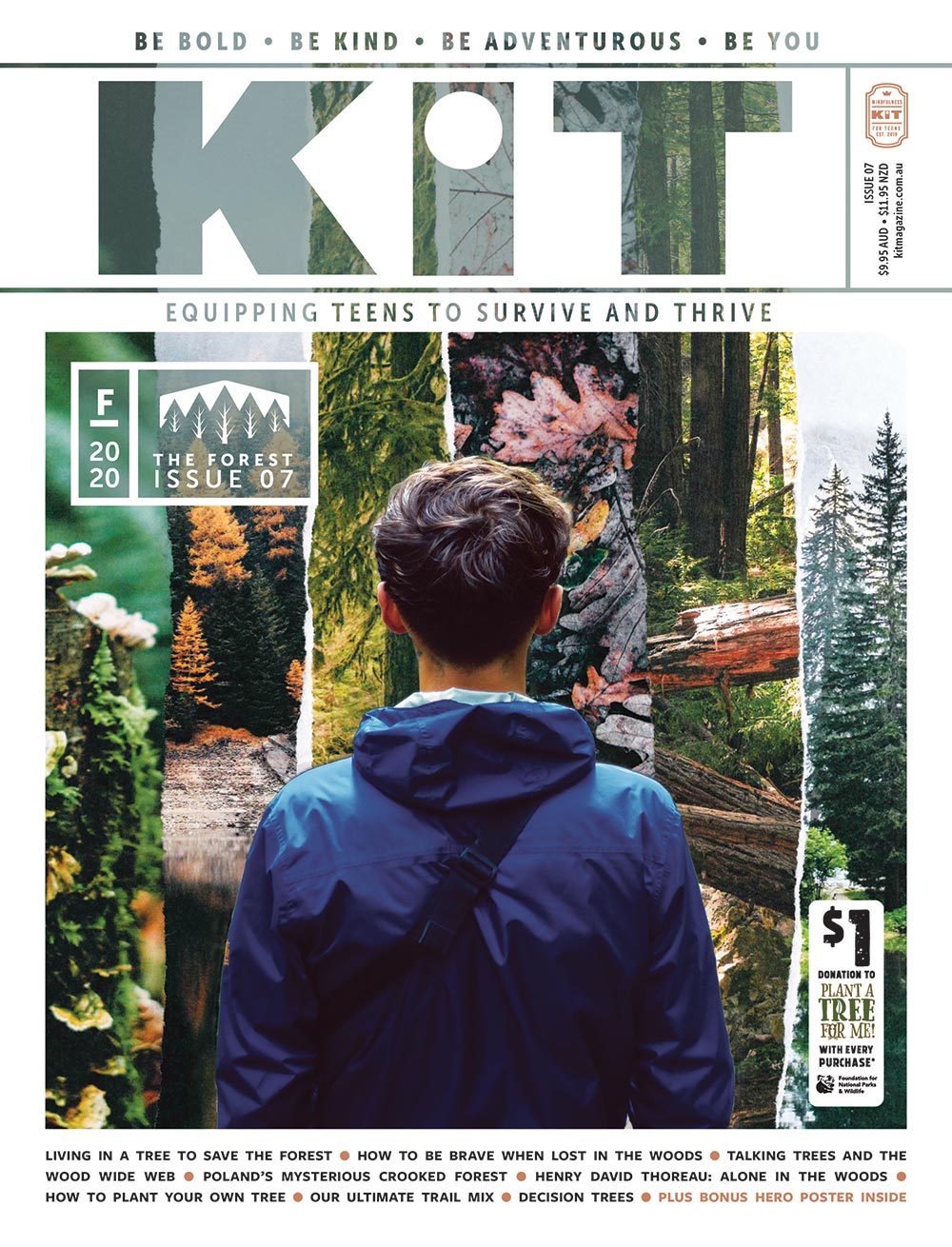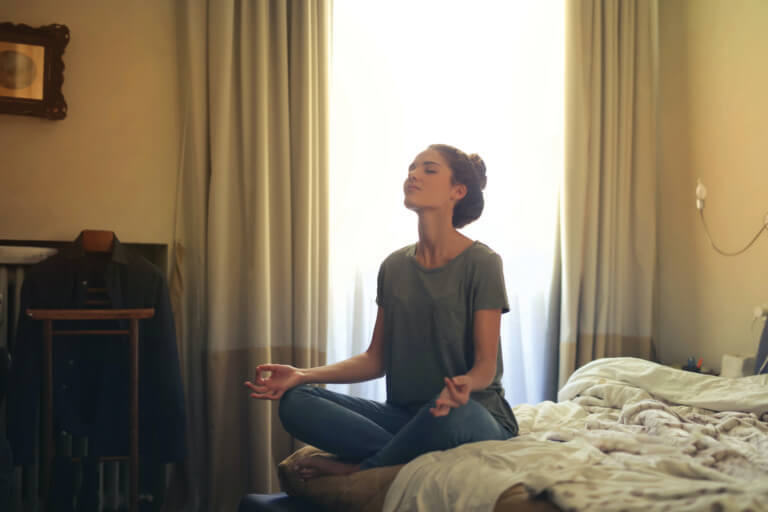
The best mountaineers in the world tell us that overcoming obstacles and reaching new peaks is as much a mental game as a matter of muscle – and the same goes for any other challenge in life.
But is there such a thing as a chin-up or a hill run for your mind? To find out, KIT chatted with motivational speaker and teen resilience coach Kate Fitzsimons.
TRAIN YOUR BRAIN
“We can absolutely train our minds to become stronger!” Kate says. Her manner is sunny and upbeat, but she speaks with a confidence that only comes from having confronted serious challenges – and prevailed. Kate adds that her techniques can be used whether the mountain you’re facing is literal or metaphorical. “There’s a whole range of mountains teens have to climb,” she says. “Some are more extreme – like the sudden loss of loved ones or parents divorcing – but the most common mountains I see them trying to conquer are the pressures of school work, friendships, parental expectations, and increasingly the pressures they’re putting on themselves due to social media, which has us constantly comparing ourselves to others.”
THE THREE ‘R’S
Whatever the challenge you want to take on, Kate’s favourite technique for building resilience is to approach it with what she calls the 3-R method. Here’s how it goes… Recognise: When we run into an obstacle, our first response might be to get upset – whether that means angry, frustrated, disappointed or hopeless. “The first R is to recognise that your thoughts are the true cause of why you feel upset,” says Kate. “Typically, we’re going to think it’s the circumstance itself causing us to feel a certain way, and that can cause us to feel very helpless when we’re facing a situation we can’t control. But the truth is it’s not circumstances outside of us causing how we feel, but our thoughts and interpretations of them.” Reflect: “Now that we’ve recognised that our thoughts are the true cause of our feeling upset,” says Kate, “the next R is to reflect upon the impact of those thoughts and feelings.” What are the feelings caused by these thoughts making you more likely to do? Give up or keep going? Remind yourself of your goal. Are these thoughts making you more or less likely to get there? Redirect: Now we can consciously shift our thinking to find a more empowering approach. “The best way to break through our negative mind chatter is to ask ourselves empowering questions,” Kate says. So, ask yourself: What are the positives that I’m ignoring here? How can I turn this setback into a comeback? What can I learn from this to help my life or the life of someone else? How might someone I admire think about this?
PRACTISE, PRACTISE, PRACTISE
“Sometimes our mind struggles to let go of our well-practised thoughts or stories we tell ourselves about a situation,” Kate says, “because of all the evidence it’s collected for those beliefs, so be patient and simply keep redirecting it to each new thought whenever you feel the unhelpful thoughts creep in.” The more you practise, the easier this will become. But Kate warns us to expect gains from the 3-R method to come slowly and steadily. To make your progress more certain, Kate suggests building some reminders into your environment: “I recommend having your favourite thoughts written where you see them daily – at your desk, on your mirror – as the more often your mind sees and repeats this new thought, the more believable it will begin to feel!”
LITTLE BY LITTLE
Even with heaps of practice, if we’re tackling a mountain that’s truly tough, we’re bound to have moments of doubt. When faced with a momentary lack of resilience, Kate likes to remember a favourite saying: “Little by little, one travels far.” When we asked Kate to explain this cryptic phrase, she said: “Rather than freaking out about how much further you have to go, you just have to remember that the most important step you can take is the next… And then the next… And then the next. And before you know it, you’ve progressed further than you thought you could, one baby step at a time – that’s how mountains are conquered.”
Get more of Kate’s great advice by following her on Instagram @katemaree_fitz or visiting katefitzsimons.com




















